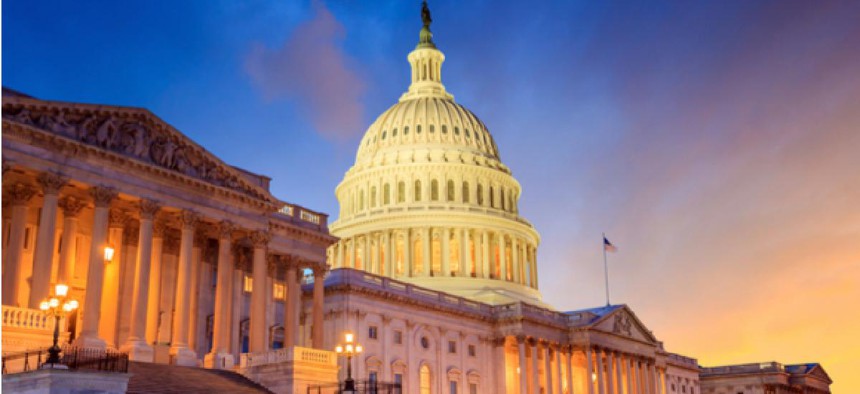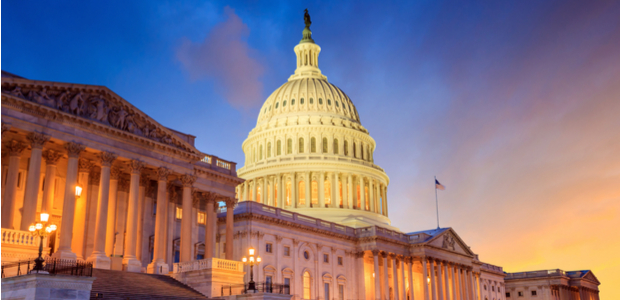Merged IT modernization bill punts on funding

A House panel approved a new IT modernization bill that appears poised to pass, but key funding questions are left for appropriators.

The House of Representatives is squeezing IT modernization into a packed legislative calendar that includes finding a way to keep the government open after Sept. 30.
The House Oversight and Government Reform Committee passed an IT modernization bill that combines a proposal from the Obama administration and a cloud adoption bill that originated in the Senate.
The Modernizing Government Technology Act merges the $3.1 billion IT Modernization Fund proposal backed by the administration and sponsored by Minority Whip Rep. Steny Hoyer (D-Md.) with a bipartisan cloud bill that asks agencies to identify and reprogram funds to move legacy IT to managed services.
The new bill, sponsored by Rep. Will Hurd (R-Texas) and Rep. Gerry Connolly (D-Va.), doesn't come with a $3.1 billion price tag – or any funding at all. It requires agencies to set up working capital funds. Funds can come from existing legacy IT expenditures, provided that the reprogramming is approved by appropriators, or from new appropriations. The money can go to retiring legacy systems, cloud transition, or to reimburse a general governmentwide fund. The agency funds have a lifespan of three years, after which unobligated funds are rescinded.
The governmentwide fund, which formed the crux of the Obama plan, is authorized but not funded by the legislation. As envisioned, the IT Modernization Fund will be housed at the General Services Administration and will advance funds to the agencies to support the upgrade or replacement of legacy systems. An IT Modernization Board will evaluate agency proposals, and dole out funds based on projects that demonstrate the greatest need when it comes to cybersecurity, promise the widest impact across government and show the greatest likelihood of success.
The bill "is another piece in the puzzle we are putting together to move federal IT systems into the 21st century," Connolly said in a statement.
The bill has Hoyer as a co-sponsor, along with House Majority Leader Kevin McCarthy (R-Calif.). The legislative muscle behind the bill accounts for it being fast-tracked for floor action next week. The bill is expected to pass the full House under suspension of the rules.
"The next step will be to capitalize this fund so that system upgrades can begin where they are needed most, and I will continue pushing for that investment," Hoyer said.
An aide to Hoyer told FCW that the goal for the governmentwide fund remains $3 billion.
"Congress cannot realistically mandate that agencies stop legacy computer systems without offering alternative options, and this bill provides the funding mechanisms to make those options available," said Oversight Committee Ranking Member Rep. Elijah Cummings (D-Md.) at the Sept. 15 markup session where the bill was reported out of committee.
It remains to be seen if legislation funding the bill can be included in a continuing resolution that will likely pass to fund the government through December, or in 2017 appropriations during the lame duck session of Congress. But even without funding, experts say, the bill can push agencies in the right direction.
"The key thing is the acceleration of effort," said Dave Wennergren, executive vice president of the Professional Services Council and a former Pentagon IT executive. He told FCW there are modernization and cloud migration efforts that don't require new money. "While we look forward to making sure investment funds are available, this bill by itself can help create positive change in government," he said.
The IT Alliance for Public Sector is also backing the merged bill, after having voiced concerns about the administration's original IT Modernization Fund proposal. In a Sept. 15 letter, ITAPS senior vice president Trey Hodgkins advised that it is important for the agency funds and the governmentwide fund work in harmony. His group is looking to make sure that "discretion for agency [CIOs] in IT investment decisions is not diluted and that incentives for participation in both funding options are not undermined or eroded by coupling repayment requirements in the IT Modernization Fund with savings deposited into the agency working capital funds."
On the Senate side, a bipartisan cloud bill is awaiting action in the Homeland Security and Governmental Affairs committee.
Acting deputy federal CIO Margie Graves, speaking at a Sept. 15 FCW event on digital government, said she was pleased by the latest developments. Noting that the MOVE IT Act has now been folded into the new bill, she said, "they may change the name, but I just want it to be moving."
"It’s supposed to be passed in the House next week and then in the Senate, if we have enough runway," Graves said. "We’ll see if it happens [before Congress adjourns for the elections] or in the lame duck session."
Troy K. Schneider contributed to this report.



